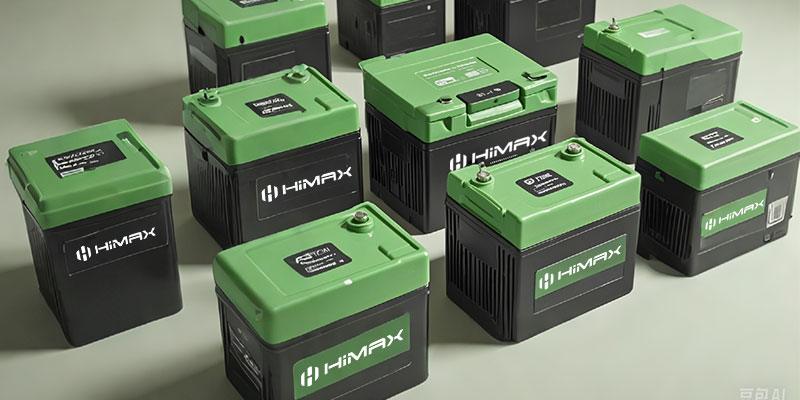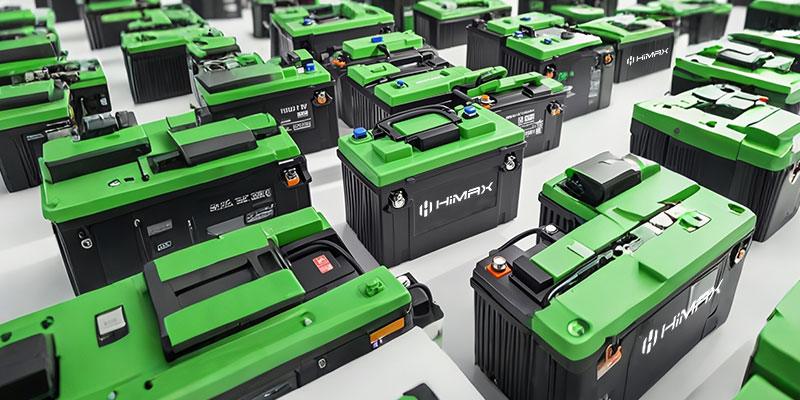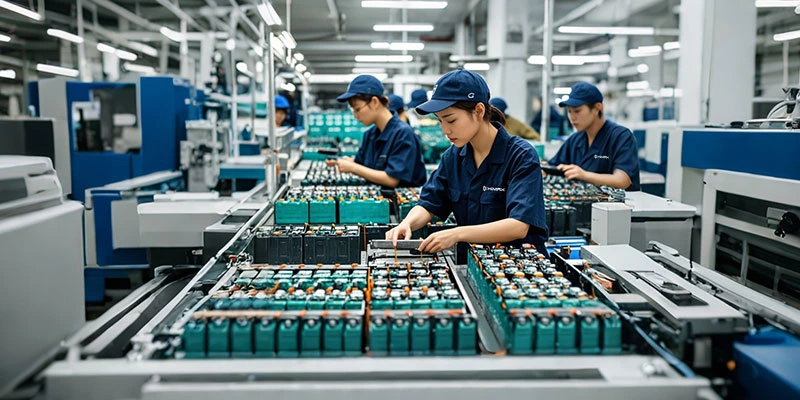Sustainability in Lithium Battery Manufacturing: What Wholesale Buyers Need to Consider
Introduction
As the global economy transitions toward sustainable energy sources, lithium batteries have become essential for powering everything from electric vehicles to renewable energy storage systems. While these batteries offer significant environmental benefits in reducing greenhouse gas emissions when in use, their manufacturing processes pose various sustainability challenges. For wholesale buyers, understanding these sustainability factors is crucial not only for ethical purchasing but also for aligning with market trends and consumer preferences. This article explores the key sustainability considerations in lithium battery manufacturing and offers insights for wholesale buyers to make informed decisions.

The Environmental Impact of Lithium Battery Manufacturing
Resource Extraction
Lithium Mining
Lithium is primarily extracted from two sources: hard rock mining and lithium brine extraction. Each method has its environmental implications:
- Water Consumption: Lithium brine extraction, commonly conducted in arid regions like the Atacama Desert, requires substantial water resources, which can strain local water supplies and impact surrounding ecosystems.
- Habitat Disruption: Mining operations can lead to deforestation, loss of biodiversity, and disruption of wildlife habitats.
Cobalt and Other Metals
Cobalt, often used in lithium batteries, raises significant ethical and environmental concerns:
- Ethical Sourcing: The majority of cobalt is mined in the Democratic Republic of Congo, where practices often involve child labor and unsafe working conditions. This highlights the need for responsible sourcing practices.
- Environmental Impact: The extraction of other metals, such as nickel and manganese, can lead to soil contamination and water pollution if not managed properly.
Manufacturing Processes
The manufacturing of lithium batteries is energy-intensive and can have a considerable carbon footprint:
- Energy Consumption: The production process often relies on fossil fuels, contributing to greenhouse gas emissions. Manufacturers are increasingly looking for renewable energy sources to power their facilities.
- Chemical Waste: The use of solvents and hazardous materials in battery production generates chemical waste that must be handled carefully to prevent environmental contamination.
End-of-Life Management
The disposal of lithium batteries at the end of their life cycle poses another set of challenges:
- E-Waste: Improper disposal of lithium batteries contributes to the growing problem of electronic waste, which can release toxic substances into the environment.
- Recycling: While lithium-ion batteries can be recycled, the current infrastructure for recycling is often inadequate. Efficient recycling processes can recover valuable materials, but many spent batteries end up in landfills.
Regulatory Frameworks and Standards
International Regulations
- EU Battery Directive: This directive establishes rules for battery recycling and material recovery within the European Union, emphasizing the importance of sustainability in battery lifecycle management.
- UN Guidelines: The United Nations has set guidelines for the safe transport of hazardous materials, including lithium batteries, to prevent environmental harm.
National Policies
- Extended Producer Responsibility (EPR): Many countries have implemented EPR policies, requiring manufacturers to take responsibility for the entire lifecycle of their products, including recycling and safe disposal.
Sustainable Practices in Lithium Battery Manufacturing
Responsible Sourcing
Wholesale buyers should prioritize suppliers who adhere to ethical sourcing practices:
- Supply Chain Transparency: Seek manufacturers that provide transparency regarding their sourcing practices, particularly for materials like cobalt and lithium.
- Certification: Look for certifications that indicate responsible sourcing, such as the Responsible Minerals Initiative (RMI) certification.
Energy Efficiency
- Renewable Energy: Choose manufacturers who invest in renewable energy sources, such as solar or wind, to power their production facilities. This can significantly reduce the carbon footprint associated with battery manufacturing.
- Energy Management Systems: Effective energy management practices can optimize energy use, minimize waste, and improve overall efficiency.
Innovative Manufacturing Techniques
- Green Chemistry: Manufacturers are increasingly adopting green chemistry principles, which focus on reducing the use of hazardous substances and minimizing waste in chemical processes.
- Advanced Recycling Technologies: Innovations in recycling technologies, such as hydrometallurgical processes, can enhance material recovery rates and reduce environmental impact.
The Role of Consumers and Buyers
Educating Your Team
Wholesale buyers should educate their teams about the importance of sustainability in lithium battery sourcing:
- Training Programs: Implement training sessions that focus on the environmental and ethical implications of lithium battery manufacturing and sourcing.
- Informed Decision-Making: Equip your team with the knowledge to assess suppliers based on their sustainability practices.
Engaging with Suppliers
- Set Sustainability Criteria: Establish clear sustainability criteria when evaluating potential suppliers. This can include requirements for ethical sourcing, energy efficiency, and waste management practices.
- Collaborate on Sustainability Initiatives: Work with suppliers to develop sustainability initiatives, such as joint recycling programs or efforts to reduce carbon emissions in the supply chain.
The Future of Sustainability in Lithium Battery Manufacturing
As consumer demand for sustainable products continues to grow, the lithium battery industry must adapt:
- Circular Economy Models: The future will likely see the implementation of circular economy principles, where battery materials are continually recycled and reused, minimizing waste.
- Technological Innovations: Ongoing research and development are expected to yield more sustainable battery chemistries and manufacturing processes, reducing environmental impact.

About Himax Electronics
Himax Electronics is a leading provider of lithium battery solutions, committed to sustainability and ethical practices. Our focus on innovation and quality ensures that our products meet the highest standards while minimizing environmental impact. By partnering with Himax, wholesale buyers can access a range of sustainable lithium battery options, backed by our dedication to responsible sourcing and manufacturing.
Conclusion
Sustainability in lithium battery manufacturing is no longer a secondary consideration; it is a fundamental aspect that wholesale buyers must prioritize. By understanding the environmental impacts, engaging with responsible suppliers, and promoting sustainable practices, buyers can not only enhance their own reputations but also contribute to a more sustainable future. As the industry evolves, staying informed and proactive will be key to maximizing both profits and environmental responsibility in the lithium battery market.



